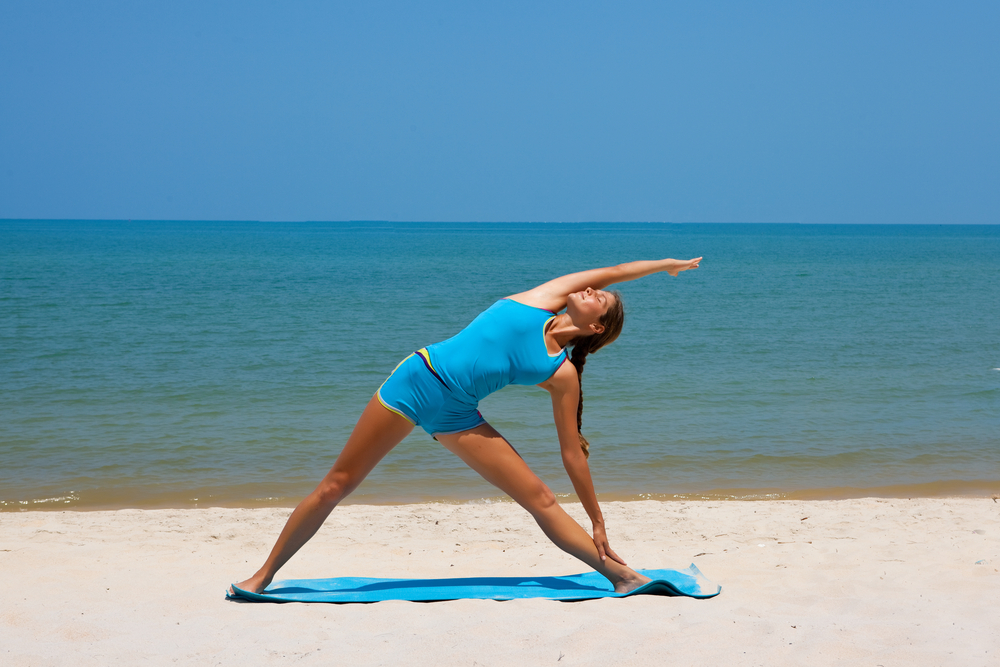Even Light Exercise May Improve Thinking in Older Adults?

Even minimal exercise of the body and mind may improve cognitive function in older adults, a new study suggests.
The findings suggest that for some older adults, light physical activities such as stretching and toning, as well as watching DVDs, may help with cognitive function, the researchers said.
The study involved 126 adults in their 70s who felt that their memory and thinking skills had declined recently, and who were not regular exercisers.
Participants were randomly assigned to one of four groups: one group played mentally stimulating computer games and practiced aerobic exercise; one group played the computer games and practiced stretching and toning; one group watched educational DVDs and practiced aerobic exercise; and one group watched the DVDs and practiced stretching and toning.
All activities were preformed for an hour a day, three days a week for 12 weeks.
The "stretching and toning" and "educational DVD" activities were intended to be "control" activities — that is, the researchers did not think these activities were intense enough to have an effect on participants' cognitive function.
However, participants in all groups saw improvements in their cognitive function compared with the beginning of the study.
Get the world’s most fascinating discoveries delivered straight to your inbox.
The findings suggest that many types of activities, even those that only lightly stimulate the body and brain, can improve cognitive function if practiced frequently enough.
"Just doing something may be more important than exactly what they're doing," said study researcher Deborah Barnes, of the University of California, San Francisco.
Because the study involved older adults who had complained of memory and thinking problems, the findings may not be true of those who aren't experiencing such problems, Barnes said.
Not everyone agrees with the researchers' conclusions. Dr. Suzanne Steinbaum, a preventive cardiologist at Lenox Hill Hospital in N.Y., said that while exercise and mental activity are important, it's too soon to say whether any type of activity is beneficial.
The new study was short, and it's possible that over a longer period, some of the activities would turn out to be more beneficial than others, Steinbaum said. In addition, some tests commonly used to assess cognitive function were not used in this study, she said.
Previous studies in healthy older adults have found that aerobic exercise and intense mental activity improved cognitive function more than light exercise and less-intense mental activity, such as watching DVDs.
It's possible that participants in the new study simply got better at taking the tests that assessed cognitive function. (Participants took the same tests more than once during the study.) However, in a separate experiment, older adults who took these tests more than once but did not practice any physical or mental activity did not improve their scores as much as participants who did physical and mental exercises.
Before starting a new exercise regimen, it's a good idea for older adults to get approval from a doctor first to make sure the activity level is safe, Barnes said.
The study is published today (April 1) in the journal JAMA Internal Medicine.
Pass it on: Even light exercise and mental stimulation may improve cognitive function in older adults.
Follow Rachael Rettner @RachaelRettner. Follow MyHealthNewsDaily @MyHealth_MHND, Facebook & Google+.

Rachael is a Live Science contributor, and was a former channel editor and senior writer for Live Science between 2010 and 2022. She has a master's degree in journalism from New York University's Science, Health and Environmental Reporting Program. She also holds a B.S. in molecular biology and an M.S. in biology from the University of California, San Diego. Her work has appeared in Scienceline, The Washington Post and Scientific American.
 Live Science Plus
Live Science Plus





